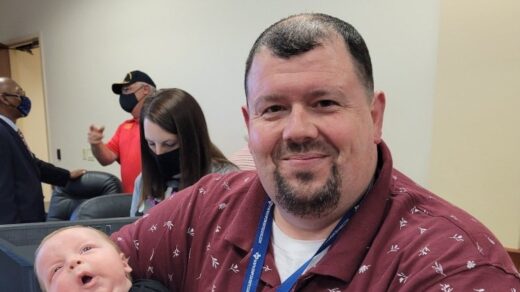Virginia Bans LGBTQ+ ‘Panic’ Defense for Murder, Manslaughter
Author: Trudy Ring
Virginia has become the 12th U.S. state with a law against the LGBTQ+ “panic” defense in criminal trials.
Gov. Ralph Northam signed a bill into law Wednesday banning the use of the defense in trials for murder or voluntary manslaughter, the Bloomberg Law news service reports. Such defenses have been used in court for years, although more rarely recently, in efforts to justify crimes against LGBTQ+ people, the argument being that the revelation of a victim’s identity or a sexual advance from the victim drove the defendant to violence.
“You can’t just say that because you discovered or you perceived someone as being LGBTQ, that that in and of itself or coupled with an oral solicitation is reason to murder or assault that person,” Virginia Del. Danica Roem, the bill’s author, told Bloomberg Law.
Roem, who is transgender, introduced the bill after receiving a request from a 15-year-old from her district, and her staff then found several instances where the defense had been used in the state, she told the Transition Virginia podcast recently. “I wouldn’t have brought the bill forward if this was not a problem in Virginia,” she said.
In 2014, California was the first state to outlaw the defense, which had been used in such high-profile cases as the 2011 trial of a teen accused of killing gay classmate Larry King and the 2002 trial of the four defendants accused of killing trans woman Gwen Araujo. In Wyoming, lawyers for one of gay man Matthew Shepard’s killers tried to use it in the 1999 trial, but the judge refused to it.
Illinois, Rhode Island, Nevada, Connecticut, Maine, Hawaii, New York, New Jersey, Washington State, and Colorado have followed, joined now by Virginia. Washington, D.C., Mayor Muriel Bowser signed a ban into law in January, and it will take effect in June. D.C.’s law is named after two residents who died in violent crimes, trans woman Bella Evangelista and gay man Tony Randolph Hunter; both of the men charged in their deaths tried to use the panic defense.
Similar bills are making their way through legislatures in Maryland and Iowa, and activists are pushing one in Nebraska, Bloomberg Law reports. There has been some resistance to such legislation by organizations representing defense attorneys, including the National Association of Criminal Defense Lawyers.
“The national association’s position is not that everyone who raises this defense should be acquitted. The position that we have is that people should be allowed to raise whatever legitimate defense that they have,” Christopher Adams, the group’s president, told the news service.
But the Criminal Justice Section of the American Bar Association supports banning the panic defense and is working for it state by state, as few violent crimes are tried in federal courts. So are LGBTQ+ groups such as Lambda Legal.
“This type of defense welcomes, legitimizes, and excuses violence, allowing a jury to find that a person’s gender or sexual orientation is to blame for the aggressor’s actions,” Avatara Smith-Carrington, an attorney and Tyron Garner Memorial Law Fellow at Lambda Legal, told Bloomberg Law.
Northam signed several other bills into law this week, including one that updates Virginia’s HIV criminalization law. Failure to disclose one’s HIV-positive status or the presence of another sexually transmitted infection to a partner before having sex will no longer a crime, but having intention to transmit an infection and actually transmitting it will remain a felony. A statement from Northam’s office says this reflects “contemporary public health knowledge” about how infections are spread and helps combat stigma.
Among the other newly enacted laws are voting rights protections, expanded access to health care, and reforms to the criminal justice system. Another calls for college scholarships and economic development programs to benefit residents “with a demonstrated historic connection to slavery” and another renames the portion of U.S. Route 1 in Virginia the Emancipation Highway; several parts of it in the state were still known as the Jefferson Davis Highway, after the president of the Confederacy.
Original Article on The Advocate
Author: Trudy Ring





